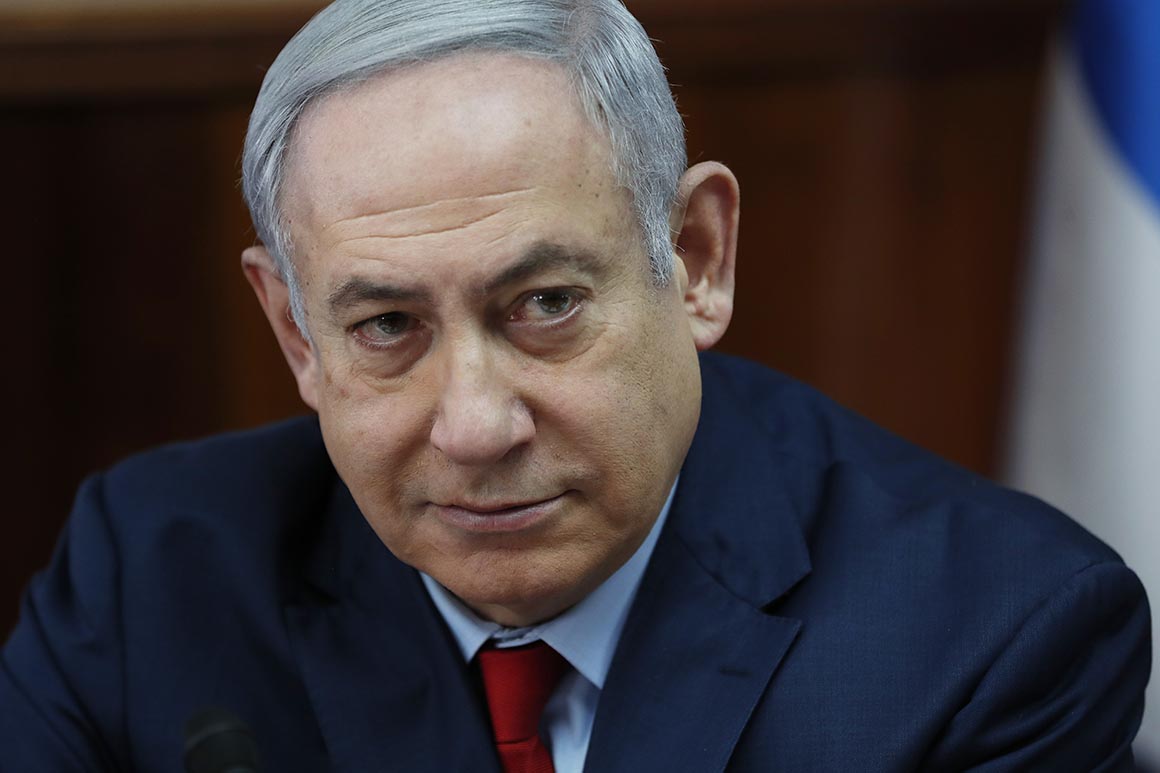
“Iran’s neighbors want Iran deterred but they don’t want Iran to be lashing out, and the question is ‘How you can deter an adversary without ever striking that adversary?’” said Jon Alterman of the Center for Strategic and International Studies.
Barack Obama, Trump’s Democratic predecessor, used sanctions and partnered with other countries to cajole Iran into negotiations that led to the 2015 Iran nuclear deal. For many Arab countries, as well as Israel, curbing Iran’s nuclear program was for years a top priority.
But by the time the nuclear deal was reached, Iran’s non-nuclear behavior in the region — especially its ballistic missile program, support for proxy militias and intervention in Syria’s civil war — had become almost as infuriating as its alleged nuclear ambitions.
The nuclear deal essentially didn’t cover those other issues, so the Saudis, Emiratis and others were ultimately unhappy with it. Israel’s Netanyahu did virtually everything he could to get the nuclear deal derailed, including delivering a blistering address to Congress in which he said the agreement “paves Iran’s path to the bomb.”
At the same time, Obama’s ongoing outreach to Iran put America’s longtime Arab partners on edge. Some questioned Obama’s commitment to their safety — a question Obama’s supporters say is ridiculous — and viewed his diplomatic efforts as a tilt toward Tehran.
Trump abandoned the nuclear agreement in May 2018, and began reimposing sanctions on Tehran that had been lifted under the deal.
The Arab official told POLITICO that what Iran’s opponents in the region want now is for the U.S. to keep pressuring Iran — preferably through sanctions and diplomacy — to sit down and hammer out a more comprehensive agreement that covers its nuclear efforts, its missile program and its aggressive regional behavior.
The official also said Arab countries need to have a seat at the negotiating table. The last agreement was crafted through negotiations involving Iran, the U.S., China, Russia, France, Britain and Germany.
On Wednesday, Trump urged those countries to “break away from the remnants of the Iran deal” and “work together toward making a deal with Iran that makes the world a safer and more peaceful place.”
Many Iran observers say that’s unrealistic.
After all, they point out: For reasons ranging from sovereignty to pride, Iran is unlikely to sit down for such far-reaching talks; the Trump administration has done little of substance to engage Iran diplomatically; and the president has badly damaged relations with some staunch U.S. allies, making a multilateral effort harder.
Some point out that they have warned for years that Trump’s sanctions-heavy approach to Iran would eventually lead to a military confrontation. So it’s rich to see Gulf Arab states and Israel suddenly blanching at the consequences.
“What did they expect would happen?” tweeted Dina Esfandiary, a fellow at The Century Foundation.
Despite its fiery rhetoric, there are signs Iran’s leaders appear wary of taking things too far.
Thanks largely to U.S. sanctions, Iran’s economy is in dire shape. In October, the International Monetary Fund predicted Iran’s economy would shrink by 9.5 percent in 2019.
Many Iranians also are tired of the regime’s oppression. Only weeks ago, the country experienced widespread protests that alarmed the clerics in Tehran so much they shut down the internet for days.
In one of multiple signals from Iran that the escalation would end if Trump didn’t fight back using military force, Iranian Foreign Minister Javad Zarif tweeted after Iran’s missile strike: “We do not seek escalation or war, but will defend ourselves against any aggression.”
But Supreme Leader Ayatollah Ali Khamenei suggested further Iranian moves could be in the works. “They were slapped last night, but such military actions are not enough,” he said on Wednesday.
Soleimani led Iran’s elite Quds Force, a kind of expeditionary unit that ran operations outside Iran’s borders. He oversaw allied militia groups in other countries and was said to keep a tight grip on them.
“Some of the militia elements that are now viewing him as having been martyred could become rogue,” a former U.S. intelligence official told POLITICO.
“That’s the one piece that worries me,” the former official said, “is that a rogue element does something that is truly escalatory and we react to it not knowing whether it’s sponsored by the supreme leader or some other person.”
As if to illustrate the potential for continued danger, a pair of rockets were reported to have been fired Wednesday at the Green Zone, the area in Baghdad where the U. S. Embassy is located.
Martin Matishak contributed to this report.
Source: politico.com
See more here: news365.stream






